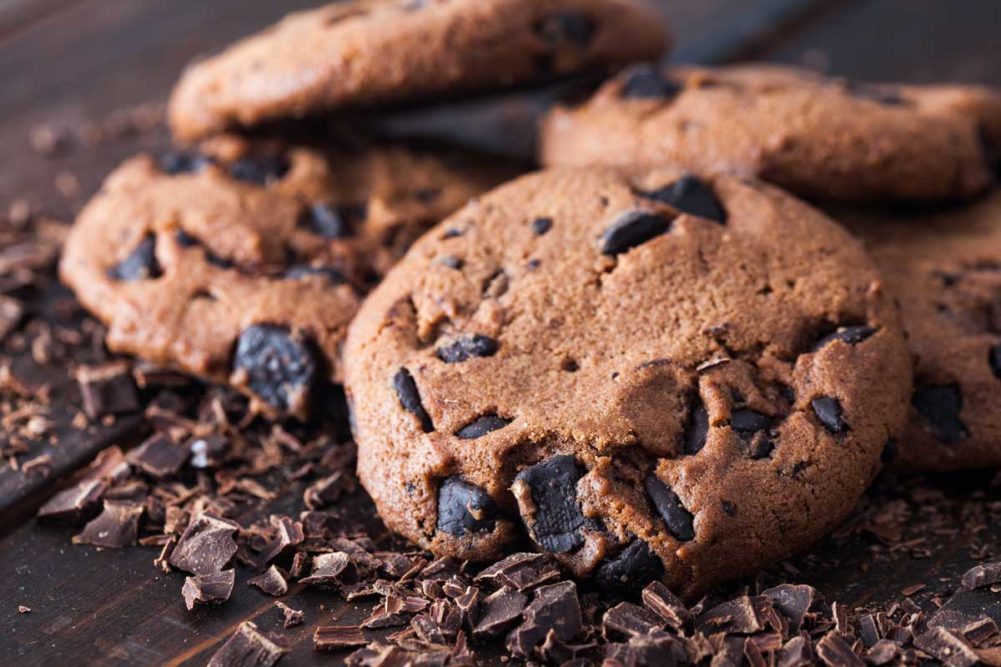While the coronavirus (COVID-19) pandemic has hurt many aspects of the economy, it has proven lucrative for the cookie category.
Sally Lyons Wyatt, executive vice president and practice leader, client insights, IRI, said the accelerated growth in cookie sales is not because people have been stockpiling goods but because people are incorporating cookies into different parts of their day. From a dessert to a reward to a healthy treat after a workout or for celebrations, cookies are finding new eating occasions.
In 2019, the total cookie market accounted for $9.1 billion in sales and grew 3.7%, according to IRI. For the 52-weeks ending Sept. 16, that growth rate reached 6.6%.
“The cookie category has more than doubled in dollar sales in 2020 versus 2019,” she said. “COVID has accelerated the adoption of online sales, and online sales will continue to be a growth channel for this category. This means there is an incredible opportunity for cookie manufacturers to understand who their online buyer is, deepen their connection with targeted messaging and ensure availability across brick and mortar, click-and-collect retailers as well as pure plays.”
According to ResearchandMarkets.com, the global cookie market is projected to grow at a CAGR of 7.37% from 2020-2025. It forecasts that the increasing number of consumers shifting toward healthier alternatives, due to the growing concerns over obesity, poor diet and other health issues, will support the growth of the cookie market globally.
The cookie market can be broken down into two categories: indulgent and permissible indulgence. Permissible indulgences, as defined by IRI, are indulgent products that have been made to be a bit more diet-, label- and health-friendly. By adding claims like high protein, low sugar or grain-free, cookies don a healthier halo.
In 2019, both segments of cookies grew. Permissible indulgent cookies grew in dollar sales by 3.8%, while indulgent cookies grew 3.4%, according to IRI. However, COVID-19 has seen an overall decline in permissible indulgent products as they’ve dropped 7.4% since March. Meanwhile, indulgent products have grown 12.4% over the same period.
“There are many reasons for the surge,” Ms. Lyons Wyatt explained. “A few of the reasons are consumers’ quest for nostalgia. Another reason is for rewarding themselves or family members. And an additional reason is not wanting to go to specialty bakeries during COVID.”
She added that the surprising decline of permissible indulgent cookie sales is not universal. Some products are growing in the segment, but an overall decline is weighing down the total.
“There have been distribution losses in the category that may be contributing to this loss in sales as well as people not ‘on the go’ and, therefore, not needing the convenience of a cookie with benefits,” she said.
Echoing this point, Innova Market Insights data shows some popular clean label claims are actually down in 2020. The percentage of cookie products claiming to have no additives/preservatives slipped to 17.8% for the 12 months ending in July vs. 28.3% for the same period ending in July 2019, Innova Market Insights reported.
GMO-free is another claim that saw a decline. Just 21.7% of new biscuits/cookies launched in the United States made this claim for year-long period ending in July. That’s down from 25.7% a year ago.
There is one exception to these declines: keto.
“As recently as 2018, just a handful of products made a ‘keto’ claim,” said Tom Vierhile, vice president of strategic insights, North America, for Innova Market Insights,. “This exploded in 2019 with a better than 10-time increase from a very, very small base. And for 2020 through September 11, 2020, we have already exceeded the full year total of ‘keto’ cookie products in 2019.”
The list of keto-focused cookie launches is extensive. The No Bake Cookie Co., Bend, Ore., introduced the Keto No-Bake Cookie in August. The cookies are gluten-free, soy-free and sugar-free and come in a variety of flavors, including Chocolate, Dark Chocolate Avocado and Peanut Butter. Both 2.8-oz single-serve and 6-oz bakery tubs contain 1 gram of sugar and 3 net carbs per serving and are available at a suggested retail price of $2.49 and $4.99, respectively, on Amazon and online at TheNoBakeCookieCo.com.
“Our No-Bake cookies have come a long way from our little corner store back home,” said Carol Healey, founder and chief executive officer of The No-Bake Cookie Co. “With the launch and evolution of our keto variety of no-bake cookies, we’re proud to bring this classic dessert to consumers everywhere, despite their dietary restrictions.”
The Keto Cookie Bite from Mpb Snacks, Miami, Fla., are vegan, gluten-free, Non-GMO Project verified, are made with plant-based protein and have no added sugar.
Danbury, Conn.-based LesserEvil Healthy Brands launched a soft-baked Mini Cookies line that is keto, certified grain-free and gluten-free. The cookies, available in Almond Butter Chocolate Chip and Snickerdoodle flavors, feature organic coconut sugar, organic coconut flour, organic coconut oil and organic ghee.
“We saw an opportunity to develop a keto cookie that is delicious, differentiated and healthier,” said Charles Coristine, president and CEO of LesserEvil. “Just another example of our steadfast commitment to investing in innovation and meticulously sourcing premium ingredients to compete in big categories where we can provide healthier choices and have the greatest impact on consumer wellness.”
Other wellness-focused cookie launches include better-for-you ingredients like collagen.
Highkey, Orlando, Fla., offers Snickerdoodle Mini Cookies made with almond flour, coconut oil and collagen in a resealable plastic pouch. Highkey markets the product as a carb-conscious cookie that takes the guilt out of indulging.
By disguising healthy ingredients in a cookie, consumers can feel good about being bad.
This article is an excerpt from the October 2020 issue of Baking & Snack. To read the entire feature on cookie trends, click here.






